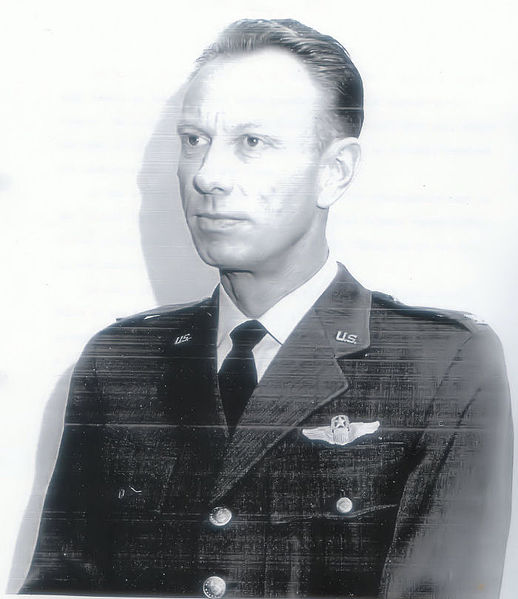 MEDFORD, Ore. (AP) — As a youngster, Michael Emmens never particularly looked forward to the family’s vacation each summer.
MEDFORD, Ore. (AP) — As a youngster, Michael Emmens never particularly looked forward to the family’s vacation each summer. “We would go to reunions of the Raiders — they had them every year,” he recalled. “I remember saying, ‘Do we have to do that again for our vacation?’ “
His father, Robert Emmens, who was inducted Sunday into the Oregon Aviation Hall of Honor at the Evergreen Aviation and Space Museum in McMinnville, was a co-pilot with the Doolittle Raiders. The group of 16 B-25 U.S. bomber crews led by then Col. James “Jimmy” Doolittle successfully carried out a daring raid on Tokyo on April 18, 1942.
“After my dad died (in 1992), my mom (Justine) wanted to continue going to the reunions — I would take her because she didn’t want to fly alone,” Michael said.
That was when he came to fully appreciate what the Raiders had done to buoy Americans’ spirits a mere five months after the attack on Pearl Harbor. Over the past 20 years, he has looked forward to attending the Raiders’ reunion and plans to attend the final reunion in Ohio early next month. Justine Emmens died in 2006.
“The Raiders bombed some oil refineries, which caused the Japanese to rethink their planned expansion in the Pacific,” said Michael, a retired registered nurse. “That caused them to bring some of their navy back to protect the homeland. And that set up the U.S. victory at Midway (Island).”
His father was a 1931 graduate of Medford Senior High School. He attended the University of Oregon from 1931 to 1934, later joining the U.S. Army Air Corps to become a bomber pilot.
Then a first lieutenant, co-pilot Emmens and his crew took off from the U.S. Hornet, an aircraft carrier out in the Pacific Ocean. Fifteen of the five-man crews either bailed out after the bombing raid or crash-landed on the China coast. Emmens’ plane, which had fuel problems, landed near Vladivostok in what was then the Soviet Union.
Emmens, who later wrote a book, “Guests of the Kremlin,” and his crew were held for 13 months before they escaped, eventually ending up in Iran. They were considered “internees,” not prisoners of war, Michael said.
“They were under house arrest,” he said. “But they were treated fairly well. Like the native Russians, they ate cabbage and bread — a lot.”
Russia had a nonaggression pact with Japan at the time, and didn’t want to anger the Japanese at that point, he said.
“The Doolittle Raid was the beginning outstanding feature of his military career,” said Michael, 66. “It defined his career, and his career defined him.”
Read more: http://www.seattlepi.com/news/article/Doolittle-Raider-named-to-Oregon-aviation-hall-4917747.php
Doolittle Raider named to Oregon aviation hall
